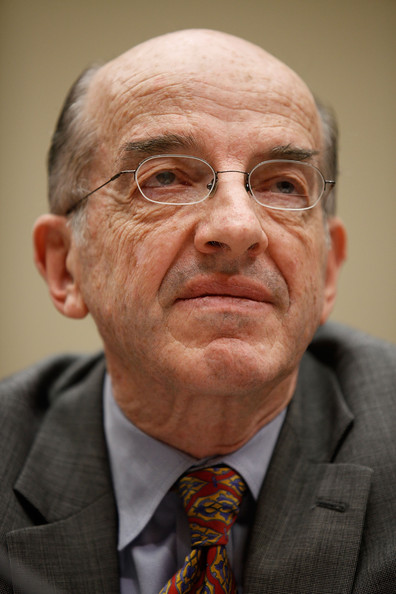Some Personal Reflections

Monday, January 25, 2021
Digital Beat
Some Personal Reflections

Little did I suspect in November 1972, when a 29-year-old chap came into our office, that I was shaking hands with someone who would be elected President of the United States many years later. I was then an aide to U.S. Senator Fritz Hollings (D-SC), and the boyish-looking fellow that Fritz brought by to meet us was the Senator-elect (still too young to be sworn in) from Delaware, Joe Biden. Fritz was serving as Chairman of the Democratic Senatorial Campaign Committee (very successfully so, as Democrats actually gained seats that year, even as George McGovern was swamped by Richard M. Nixon), and young Joe Biden was someone he helped get elected. This was right before the tragic accident that cost the lives of Senator-Elect Biden’s wife and daughter and that seriously injured his two sons. A distraught Joe Biden very nearly decided to forego the Senate seat he had won so he could be close to his children in Delaware. Senator and Mrs. (“Peatsy”) Hollings took Joe under their protective wings, comforted him, and, with the help of then-Majority Leader Mike Mansfield and a few other Senators, convinced Biden to give the Senate a try for six months to see if he could make it work. And it did.
As a fledgling staffer, I mostly observed rather than participated in this process, but I watched it closely. Fritz and Joe became best friends. They each had a commanding presence, directness of style, tell-it-like-it-is personalities, razor-sharp mentalities, deep commitment to advancing the common good, and even some similar mannerisms in the ways they carried themselves. It was a joy to watch them together. And it was inspiring to see the competence and compassion that motivated them both.
Joe came to South Carolina many times for events involving Fritz and also our current House Majority Whip Jim Clyburn (famous for his fish fry gatherings). When Senator Hollings passed away in 2019, Joe left the campaign trail and traveled to Charleston to deliver a truly moving eulogy to his friend. He had come there when Peatsy passed away, too.
This week, as I saw President Joe Biden sworn in, my mind went back to the Senate as I knew it in the 1970s. It was a better place then. Don’t get me wrong, it was far from perfect. But there was civility, cooperation, an ability to listen rather than simply bloviate, willingness to cross the aisle on issues and votes, and, importantly, pride in the institution of the Senate. Members spent time together, traveled together, went to one another’s homes for dinner, across party lines. I look at those days now not as curiosities of a bygone era, but as necessities for making the Senate a working institution. Senators didn’t have to be ideological soul-mates to get along. Indeed, Hollings and Biden had differences on many issues. But out of a shared commitment to make government work for the people, they showed how to get things done. Today’s Senate needs serious repair.
So does the White House. So does the nation. The past four years of slash and burn brought the country low. The damage didn’t start in 2016, of course, but it jumped to warp speed following the coming of the Trump Administration, its absence of competence, its daily tsunami of mis- and dis-information, the deepening of the swamp that was allegedly going to be drained, and the lack of any conception of the public interest. It was four years that the locusts had eaten and it seriously diminished our democracy. Its continuation would have killed it. We don’t need to detail the carnage here; I just want us to realize how close we came to sinking the ship.
Then came the Trump-manufactured electoral chaos following November 3. An attempted coup fueled by a record-setting case of hyper-narcissism put the nation through a trauma that could have been the final torpedo that sunk the ship of state. Like many of you, I found it psychologically destabilizing—I was up one day, down another, depending upon a particular city’s recount or some local judge’s unpredictable decision. It was awful, and I pity my wife having to put up with me in our COVID-induced lockdown. Then to watch the violent assault on our Capitol, whose halls I had walked for so many years—always with a sense of history and even reverence—was like watching democracy die.
But democracy’s future is not written in the stars. It’s written here, by us. And its renewal is up to us. This Inaugural Week brings renewed promise. The change at the top is breath-taking. The talents, deep personal commitment, and experience of our new President are plain for all those who will only look.
(Permit me an aside about age and experience. There has been a lot of talk about President Biden’s age. I would only note that with his years he brings a wealth of experience and maturity unmatched by any President in modern history. I have long thought that even some of our better chief executives—like Jack Kennedy, Bill Clinton, and Barack Obama—would have been even more effective with a little more seasoning than they brought with them to the office. Some will observe that aspiring politicians must run when the political stars are aligned for them, no matter their youth. And there’s a lot to that observation. But it counts for a lot that our new leader has been immersed in so much history, been a part of the give-and-take on so many issues, and knows so many decision-makers both at home and abroad. I don’t say this just because I’m a senior citizen myself, actually a bit older than Joe, or because older folks always predictably tout their “experience.” When I was a college student, my Dad and I would get into some rather spirited political discussions—I had strayed from his party affiliation—and he would always shut them down by noting he had the wisdom of experience and that trumped my callow youth. Of course, I was often right—but not always. Well, it’s a question of balance I suppose, but the history and experience Joe Biden brings with him are valuable assets for his, and our, futures. His Inaugural address was forward-looking, practical, and inspirational. He knows how things work, why they work the way they do, and how they could work better. He brings a needed and refreshing perspective to the White House.)
These have been promising days since the inauguration, but our job is just beginning. More than our votes for change are needed to make change happen. Lasting change can come from vision and smarts at the top, but only if it is supported and pushed from the pressure of grassroots activism. A majority of us has voted for change, but pressure to realize change must continue beyond election day. Self-government is not a spectator sport; it is our participatory duty. Politics is the practical art of self-government, Elihu Root wrote long ago, and somebody must attend to it if we are to have self-government. “The principal ground of reproach against any American citizen should be that he is not a politician,” Root said. That means getting involved, knowing the issues, organizing for change, and making sure that those we elect at all levels will get the job done. It means holding power accountable. In a democracy that’s your job and mine.
A Word About Chairwoman Jessica Rosenworcel
President Biden has appointed Commissioner Jessica Rosenworcel as Interim Chair of the Federal Communications Commission. She is ideal for the job. I know, because she worked in my office while I was a commissioner and became my senior adviser. She knows the FCC from the bottom up and she understands how to make good policy and translate it into action. Jessica was called from my staff to the U.S. Senate Commerce Committee, where she was responsible for telecom and media policy, so she knows the players and ways of the Legislative branch, too. As commissioner in her own right, she has been a true champion of the public interest. Whether it’s bringing broadband to every home in America, encouraging internet availability for our school children, making wise decisions for the utilization of spectrum, contesting telecom and media monopolies, or battling mis- and dis-information, she has consistently demonstrated a combination of vision and practicality that make her perfect for the chairmanship. Congratulations, Jessica.
Michael Copps served as a commissioner on the Federal Communications Commission from May 2001 to December 2011 and was the FCC's Acting Chairman from January to June 2009. His years at the Commission have been highlighted by his strong defense of "the public interest"; outreach to what he calls "non-traditional stakeholders" in the decisions of the FCC, particularly minorities, Native Americans and the various disabilities communities; and actions to stem the tide of what he regards as excessive consolidation in the nation's media and telecommunications industries. In 2012, former Commissioner Copps joined Common Cause to lead its Media and Democracy Reform Initiative. Common Cause is a nonpartisan, nonprofit advocacy organization founded in 1970 by John Gardner as a vehicle for citizens to make their voices heard in the political process and to hold their elected leaders accountable to the public interest. Learn more about Commissioner Copps in The Media Democracy Agenda: The Strategy and Legacy of FCC Commissioner Michael J. Copps
The Benton Institute for Broadband & Society is a non-profit organization dedicated to ensuring that all people in the U.S. have access to competitive, High-Performance Broadband regardless of where they live or who they are. We believe communication policy - rooted in the values of access, equity, and diversity - has the power to deliver new opportunities and strengthen communities.
© Benton Institute for Broadband & Society 2021. Redistribution of this email publication - both internally and externally - is encouraged if it includes this copyright statement.
For subscribe/unsubscribe info, please email headlinesATbentonDOTorg






